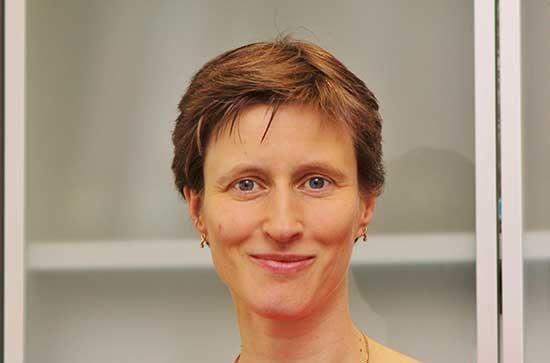Niamh O'Sullivan

Biography
Niamh teaches Equine Business at the School of Business. She teaches the subjects stud farm business management, equine leisure and tourism, racecourse and equine event management and the social and economic impact of the equine industry both in Ireland and internationally. Before joining Maynooth University, Niamh worked in a variety of advisory and management positions within both the thoroughbred and sport horse sectors including Specialist Equine Adviser with Teagasc (The Irish Agriculture and Food Development Authority) General Manager, Irish Thoroughbred Breeders Association, Equestrian Sport Manager, Horse Sport Ireland. She has many years of practical experience working in the industry in Ireland, the UK and Europe.
Research Interests
Her research interests are the international thoroughbred breeding and racing industry, sport horse breeding programmes,equestrian high performance programmes, increasing participation in equestrian sport, the international management of disease prevention and control.
Niamh is also a PhD candidate at Dublin City University, Ireland, under the supervision of Professor David G. Collings. Her main research interests are skilled mobility and macro talent management. Her current work focuses on the role of skilled mobility in augmenting regional competitiveness.
Niamh is also a PhD candidate at Dublin City University, Ireland, under the supervision of Professor David G. Collings. Her main research interests are skilled mobility and macro talent management. Her current work focuses on the role of skilled mobility in augmenting regional competitiveness.
Conference Contribution
Electronic Article
| Year | Publication | |
|---|---|---|
| 2018 | Niamh C. O' Sullivan (2018) Odds on: A Short History of Bookmaking. ELEA [Link] |
Certain data included herein are derived from the © Web of Science (2023) of Clarivate. All rights reserved.
Honors and Awards
Employment
Education
Teaching Interests
Main teaching interests are the social, sporting and economic impact of the equine industry in Ireland and internationally, the importance of business, financial and regulatory management within the industry, measures to promote and develop greater engagement with and participation in thoroughbred racing and equestrian sports.
For example I teach the Introduction to the Equine Industry module to our first year BBS in Equine Business students:
This module is designed to enable students to understand the business environment within the Irish equine industry. It examines the range of equine firms operating within Ireland and abroad. It also offers insights into the interplay between the various equine business, industry stakeholders, and the environment in which they operate in Ireland and internationally. This module will give students a comprehensive knowledge of the size and economic importance of both the thoroughbred and sport horse sectors of the Irish equine industry relative to our main international competitors, including activities involved, population/production figures, participant numbers, regional centres of excellence, numbers employed, and performance parameters. It examines the organisational structure and responsibilities and critically evaluates the objectives of the governing and relevant industry bodies. It appraises the input and response by the governing bodies and industry stakeholders to Government policies. It identifies and assesses the financial support structures in place within the industry and the role of public funding. The module explores the symbiotic relationship between many of the main industry stakeholders in both the sport horse and thoroughbred sectors and also between the two sectors of the equine industry itself.
Students will learn about and have the opportunity to discuss Government policy and topical issues of concern within the industry with staff and a number of expert industry practitioners who will join the class for a speaker series that runs throughout the module. Specifically, the module will assess the status of the Irish equine industry within the international equine industry and the potential for building on our strength’s and past successes to further develop the Irish equine industry on the world stage.
For example I teach the Introduction to the Equine Industry module to our first year BBS in Equine Business students:
This module is designed to enable students to understand the business environment within the Irish equine industry. It examines the range of equine firms operating within Ireland and abroad. It also offers insights into the interplay between the various equine business, industry stakeholders, and the environment in which they operate in Ireland and internationally. This module will give students a comprehensive knowledge of the size and economic importance of both the thoroughbred and sport horse sectors of the Irish equine industry relative to our main international competitors, including activities involved, population/production figures, participant numbers, regional centres of excellence, numbers employed, and performance parameters. It examines the organisational structure and responsibilities and critically evaluates the objectives of the governing and relevant industry bodies. It appraises the input and response by the governing bodies and industry stakeholders to Government policies. It identifies and assesses the financial support structures in place within the industry and the role of public funding. The module explores the symbiotic relationship between many of the main industry stakeholders in both the sport horse and thoroughbred sectors and also between the two sectors of the equine industry itself.
Students will learn about and have the opportunity to discuss Government policy and topical issues of concern within the industry with staff and a number of expert industry practitioners who will join the class for a speaker series that runs throughout the module. Specifically, the module will assess the status of the Irish equine industry within the international equine industry and the potential for building on our strength’s and past successes to further develop the Irish equine industry on the world stage.
